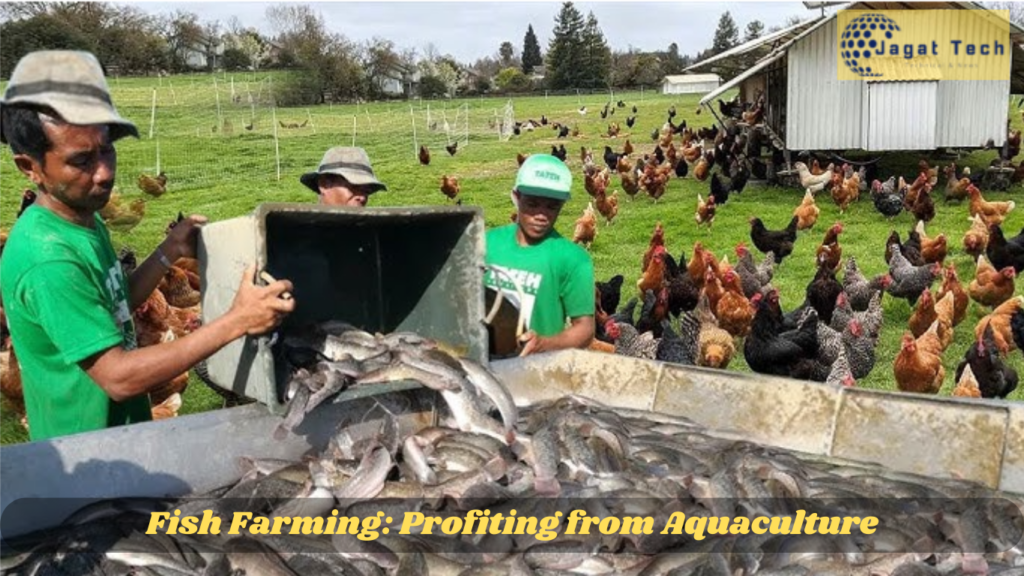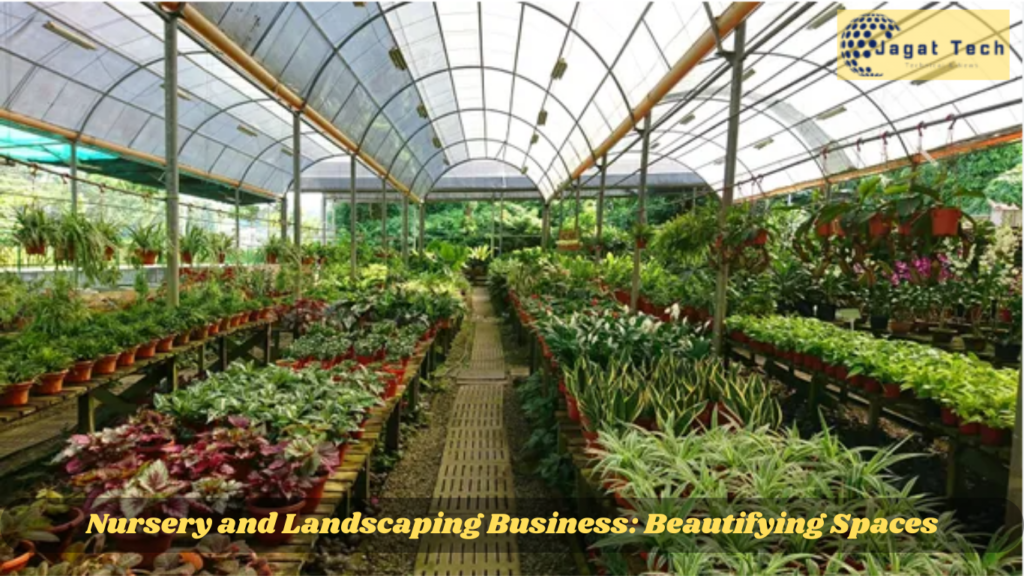Agri-Business Ideas: Unlocking Opportunities in Agriculture

Agriculture has always been a vital sector of the global economy, supporting billions of people and driving various industries. With the rise of innovative technologies and increasing awareness of sustainable practices, agri-businesses offer enormous potential for growth and profitability. Whether you are a seasoned farmer, an entrepreneur, or a beginner interested in the sector, Agri-Business Ideas provide diverse avenues to make a meaningful impact. Below is a comprehensive exploration of agri-business ideas, categorized for convenience, to help you identify opportunities that align with your interests and resources.
Organic Farming: Capitalizing on Health Trends
Organic farming is increasingly popular as consumers demand chemical-free and eco-friendly produce. By cultivating crops and raising livestock without synthetic fertilizers, pesticides, or genetically modified organisms, you can create a niche for premium-priced products. This business requires land, knowledge of organic farming techniques, and certification.
Organic farming can be scaled in multiple ways:
- Vegetables and Fruits: Growing seasonal, organic produce offers a steady income.
- Dairy Products: Organic milk, cheese, and yogurt are highly sought after.
- Grains and Pulses: These staples fetch higher prices when grown organically.
Establishing relationships with local grocery stores, restaurants, or direct-to-consumer delivery models can further increase profitability.
Vertical Farming: Growing Food in Urban Spaces
Vertical farming is a revolutionary concept designed to optimize limited space. It involves growing crops in stacked layers using hydroponics, aeroponics, or aquaponics systems. This method is particularly useful in urban areas where traditional farming isn’t feasible.
Advantages of vertical farming include:
- Minimal use of water and pesticides.
- Consistent yields regardless of weather.
- Reduced transportation costs due to proximity to urban markets.
Investing in LED grow lights, automated systems, and climate-controlled environments may be expensive initially but promises substantial returns in the long term.
Mushroom Cultivation: Low Investment, High Return

Mushroom farming is one of the most profitable Agri-Business Ideas with minimal space and investment requirements. Popular varieties include button mushrooms, oyster mushrooms, and shiitake mushrooms. These are in demand for their culinary and medicinal uses.
Starting a mushroom farm involves:
- Setting up a temperature and humidity-controlled growing area.
- Procuring quality spawn and substrates.
- Learning techniques for harvesting and packaging.
Selling directly to restaurants, supermarkets, or exporting dried mushrooms can ensure steady profits.
Beekeeping: Harvesting Honey and Beyond
Beekeeping, or apiculture, is a fascinating business with multiple revenue streams. Apart from honey, beeswax, royal jelly, propolis, and pollination services are highly valuable products. Beekeeping requires minimal space and can be integrated with other Agri-Business Ideas activities.
Key steps to start beekeeping:
- Purchase quality bee colonies and hives.
- Learn hive management and honey extraction techniques.
- Establish connections with local and international markets for sales.
Beekeeping also supports environmental sustainability by promoting pollination and biodiversity.
Agro-Tourism: Blending Agriculture with Hospitality
Agro-tourism is an emerging trend where farms offer experiences for visitors, such as farm stays, workshops, and recreational activities. This business capitalizes on the growing interest in rural lifestyles and sustainable living.
Elements of a successful agro-tourism venture include:
- Creating unique farm experiences like fruit-picking or milking cows.
- Offering accommodations and local cuisine.
- Marketing the venture through social media and travel agencies.
Agro-tourism not only diversifies income streams but also raises awareness about farming.
Dairy Farming: Meeting Ever-Growing Demand
Dairy farming has always been a lucrative Agri-Business Ideas due to the consistent demand for milk and milk products. With advancements in technology, managing dairy farms has become easier and more efficient.
Steps to start a dairy business:
- Select high-yield breeds of cows or buffaloes.
- Implement modern milking and feed management systems.
- Process milk into value-added products like cheese, butter, and yogurt.
Collaborating with retailers or setting up a direct-to-consumer model can significantly boost earnings.
Herbal Farming: Tapping into Wellness Markets
The global wellness industry has sparked demand for herbal and medicinal plants like aloe vera, turmeric, ashwagandha, and lemongrass. Herbal farming is profitable due to its low input cost and high market value.
Starting this business requires:
- Identifying high-demand herbs suitable for your region.
- Acquiring knowledge of cultivation and harvesting techniques.
- Partnering with pharmaceutical, cosmetic, or food industries.
Processing herbs into essential oils, teas, or supplements adds further value to your business.
Fish Farming: Profiting from Aquaculture

See Also Black Couple Holding Hands Instagram
Fish farming, or aquaculture, is a thriving business as fish remains a staple protein source worldwide. Commonly farmed species include tilapia, catfish, and shrimp.
To succeed in fish farming:
- Choose a suitable water body or create artificial tanks.
- Select fast-growing, disease-resistant fish breeds.
- Use efficient feeding and water management systems.
Processing and selling fish locally or exporting seafood can yield significant profits
Agri-Tech Solutions: Bridging Technology and Farming
Agri-tech startups are transforming Agri-Business Ideas through innovation. By integrating technology like drones, AI, and IoT into farming, you can create a sustainable and profitable business model.
Popular agri-tech ventures include:
- Precision farming solutions.
- Farm management software.
- Automated irrigation and pest control systems.
Collaborating with farmers, agricultural organizations, or government schemes ensures long-term success.
Floriculture: Blossoming into a Profitable Business
Floriculture involves the cultivation of flowers and ornamental plants for sale as cut flowers, potted plants, or decorative foliage. This business is ideal for regions with favorable climates and strong market demand.
Steps to start floriculture:
- Grow high-demand flowers like roses, marigolds, and lilies.
- Set up greenhouses for year-round cultivation.
- Partner with event planners, florists, or export companies.
Floriculture can also be extended to seed production, essential oil extraction, or floral design services.
Poultry Farming: Meeting Protein Needs
Poultry farming, including chicken, turkey, and duck farming, is a highly scalable business. It caters to the demand for eggs, meat, and feathers.
Starting poultry farming requires:
- Setting up poultry houses with proper ventilation.
- Choosing high-yield breeds for layers or broilers.
- Marketing through local markets, supermarkets, or restaurants.
Automation and biosecurity measures can further improve efficiency and reduce costs.
Agribusiness Consulting: Guiding Farmers to Success
If you possess expertise in agriculture, starting a consulting firm can be rewarding. Farmers and Agri-Business Ideas seek advice on crop selection, pest management, market trends, and government policies.
Key steps include:
- Building a network of agricultural experts.
- Offering personalized or online consulting services.
- Keeping abreast of the latest agricultural developments.
This knowledge-based business has minimal setup costs and high profit potential.
Seed Production: Ensuring High-Quality Yield
Producing and supplying high-quality seeds is a critical component of modern agriculture. Hybrid, genetically modified, or disease-resistant seeds have high demand.
To start a seed production business:
- Select crops suited to your region.
- Partner with research institutions or agricultural universities.
- Invest in proper storage and packaging facilities.
Selling seeds locally or through e-commerce platforms expands your reach and profitability.
Farm Machinery Rentals: Supporting Small Farmers
Many small-scale farmers cannot afford expensive machinery like tractors, harvesters, or drones. Renting out machinery is a cost-effective solution that benefits both parties.
Starting a farm machinery rental business involves:
- Acquiring modern, efficient equipment.
- Creating a transparent rental model.
- Offering maintenance and operator training.
This business thrives in regions with high agricultural activity and limited mechanization.
Fertilizer and Organic Compost Production: Supporting Sustainable Farming
Fertilizer and organic compost production is a lucrative Agri-Business Ideas idea that aligns with the global push for sustainable farming practices. With increased awareness of the harmful effects of chemical fertilizers, organic compost is in high demand.
To start this business, you need:
- Raw materials like plant waste, manure, and food scraps.
- Knowledge of composting techniques such as vermicomposting.
- Equipment for shredding, mixing, and packaging compost.
Collaborate with local farmers, nurseries, or online gardening stores to market your product. Additionally, you can produce biofertilizers enriched with beneficial microbes to cater to niche markets.
Agri-Waste Management: Turning Waste into Wealth
Agricultural waste, including crop residues, husks, and manure, can be transformed into valuable products like bioenergy, bioplastics, and animal feed. Agri-waste management is a growing business opportunity due to environmental concerns and government incentives.
Steps to start an agri-waste management business:
- Identify the type of agricultural waste available in your region.
- Invest in processing technologies such as biomass converters or composters.
- Develop a supply chain for collecting and distributing processed products.
This eco-friendly business not only generates profits but also supports sustainable farming practices.
Greenhouse Farming: Cultivating Crops All Year Round
Greenhouse farming allows you to grow high-value crops regardless of climatic conditions. By controlling temperature, humidity, and light, greenhouses provide an ideal environment for vegetables, flowers, and fruits.
Key aspects of greenhouse farming include:
- Choosing crops with high market demand, such as tomatoes, peppers, or strawberries.
- Installing energy-efficient systems for heating and irrigation.
- Using hydroponics or soil-based methods for cultivation.
Greenhouse farming requires a significant initial investment but offers consistent yields and high returns.
Animal Feed Production: Meeting Livestock Needs
Livestock farming depends heavily on quality feed. Producing and supplying animal feed is a profitable business that complements poultry, dairy, and fish farming industries.
Steps to launch an animal feed production business:
- Source raw materials such as grains, oilseeds, and mineral supplements.
- Set up a feed mill with mixing and packaging equipment.
- Conduct research to formulate balanced feed for different livestock.
Collaborating with livestock farmers, cooperatives, or agricultural supply stores ensures steady sales.
Hydroponic Farming: Soilless Cultivation for the Future
Hydroponic farming is an innovative method of growing plants without soil, using nutrient-rich water solutions. This technique is ideal for urban areas with limited land availability.
Advantages of hydroponic farming:
- Faster plant growth and higher yields.
- Efficient use of water and nutrients.
- Reduced risk of soil-borne diseases.
You can grow leafy greens, herbs, or exotic fruits and market them to health-conscious consumers, restaurants, and supermarkets. Although hydroponic farming requires significant setup costs, its scalability and profitability are unmatched.
Sericulture: The Art of Silk Production
Sericulture, or silk farming, is a niche Agri-Business Ideas with high profitability. It involves raising silkworms to produce raw silk, which is then processed into textiles.
To start sericulture, you need:
- Mulberry plantations to feed silkworms.
- Facilities for rearing and processing cocoons.
- Expertise in silk extraction and grading.
Collaborate with textile industries or export raw silk to international markets for maximum profits. This labor-intensive business also provides employment opportunities in rural areas.
Nursery and Landscaping Business: Beautifying Spaces

Starting a plant nursery or landscaping business is a great way to combine horticulture with creativity. With increasing urbanization, the demand for ornamental plants and professional landscaping services is growing rapidly.
Steps to succeed in this business:
- Grow a variety of indoor and outdoor plants, including succulents, bonsai, and flowering shrubs.
- Offer landscaping design and maintenance services.
- Use online platforms and social media for marketing.
This business can be operated on a small scale initially and expanded as demand increases.
Grain Milling: Adding Value to Staples
Grain milling involves processing raw grains like wheat, rice, and corn into flour, semolina, or other value-added products. This business is essential in the food supply chain and offers steady demand.
Starting a grain milling business requires:
- A reliable supply of raw grains.
- Investment in milling and packaging machinery.
- Knowledge of storage and quality control methods.
You can cater to local markets or export premium-grade products to international buyers. Packaging your products attractively can further enhance sales.
Farm-to-Table Restaurants: Promoting Local Produce
Farm-to-table restaurants focus on serving dishes made with fresh, locally sourced ingredients. This Agri-Business Ideas combines agriculture with the hospitality industry, offering a unique dining experience.
To start a farm-to-table restaurant:
- Partner with local farmers for a steady supply of fresh produce.
- Develop a menu that highlights seasonal and organic ingredients.
- Create a rustic and inviting ambiance.
Marketing your restaurant as eco-friendly and community-focused can attract health-conscious customers.
Agricultural Export: Tapping into Global Markets
Exporting agricultural products such as spices, grains, fruits, and processed foods can be highly profitable. With proper quality standards and certifications, you can tap into international markets where demand is high.
Steps to start an agricultural export business:
- Identify products with strong demand overseas.
- Obtain export licenses and certifications.
- Establish a robust supply chain for sourcing and logistics.
Participating in international trade fairs and using digital marketing strategies can boost your visibility in global markets.
Aquaponics: Combining Fish and Plant Farming
Aquaponics integrates aquaculture (fish farming) with hydroponics to create a sustainable farming system. The waste produced by fish provides nutrients for plants, while the plants filter water for the fish.
Key steps to start an aquaponics farm:
- Set up tanks and grow beds with recirculating water systems.
- Choose compatible fish species and crops.
- Monitor water quality and nutrient levels.
This eco-friendly system is ideal for urban farming and offers dual income from fish and plants.
What are the risks in starting an agri-business?
Agri-businesses face several risks, such as climate uncertainties, pest infestations, and fluctuating market prices. Weather-related challenges like droughts, floods, or unpredictable seasons can disrupt production and lead to financial losses. Additionally, changes in government policies, trade restrictions, or the availability of agricultural inputs can also pose significant challenges. Proper risk management strategies, including insurance, diversified income sources, and sustainable practices, can help mitigate these issues.
How can I finance my agri-business?
Financing an agri-business can be achieved through various methods, including personal savings, bank loans, government subsidies, and grants specific to the agriculture sector. Many financial institutions offer schemes tailored to support farmers and agricultural entrepreneurs. Crowdfunding and partnerships are also viable options. Preparing a detailed business plan and feasibility study can enhance your chances of securing funding from investors or financial institutions.
FAQ’s About Agri-Business Ideas
What is agri-business?
Agri-business refers to the business activities involved in the production, processing, and distribution of agricultural products. It includes farming, supply chains, equipment, technology, and value-added products that support agriculture and contribute to the economy.
How can I start an agri-business with low investment?
You can begin with small-scale ventures such as:
Organic compost production.
Mushroom cultivation.
Beekeeping.
Backyard poultry farming.
Herb farming.
These businesses require minimal capital and space but can generate significant profits with proper planning and effort.
What are the most profitable agri-business ideas?
Some of the most profitable agri-business ideas include:
Organic farming.
Vertical farming.
Hydroponics and aquaponics.
Dairy farming.
Agro-tourism.
Agricultural exports.
The profitability of these businesses depends on market demand, location, and your level of expertise.
Is technology essential for agri-business success?
While not always necessary, technology can significantly enhance productivity and efficiency. Agri-tech solutions such as drones, automated irrigation systems, and precision farming tools can improve yields, reduce costs, and provide better insights into farming practices.
How do I market my agri-business products?
Marketing strategies include:
Selling directly to consumers through farmers’ markets or e-commerce platforms.
Partnering with local grocery stores and restaurants.
Using social media to promote your products and share your story.
Attending trade fairs or exhibitions to network with buyers and distributors.
What are the legal requirements to start an agri-business?
Legal requirements vary by location and business type but may include:
Registering your business.
Obtaining necessary licenses and permits (e.g., organic certification, export licenses).
Adhering to food safety and environmental regulations.
Conclusion
The agri-business landscape is rich with opportunities for entrepreneurs ready to innovate and invest. Whether you focus on organic farming, advanced technologies, or sustainable practices, the potential for growth is immense. The key to success lies in understanding market demands, leveraging resources effectively, and adopting modern techniques.
As global populations rise and climate challenges intensify, agriculture will remain at the forefront of economic and environmental sustainability. By venturing into agri-business, you not only secure financial stability but also contribute to a greener and healthier planet.






